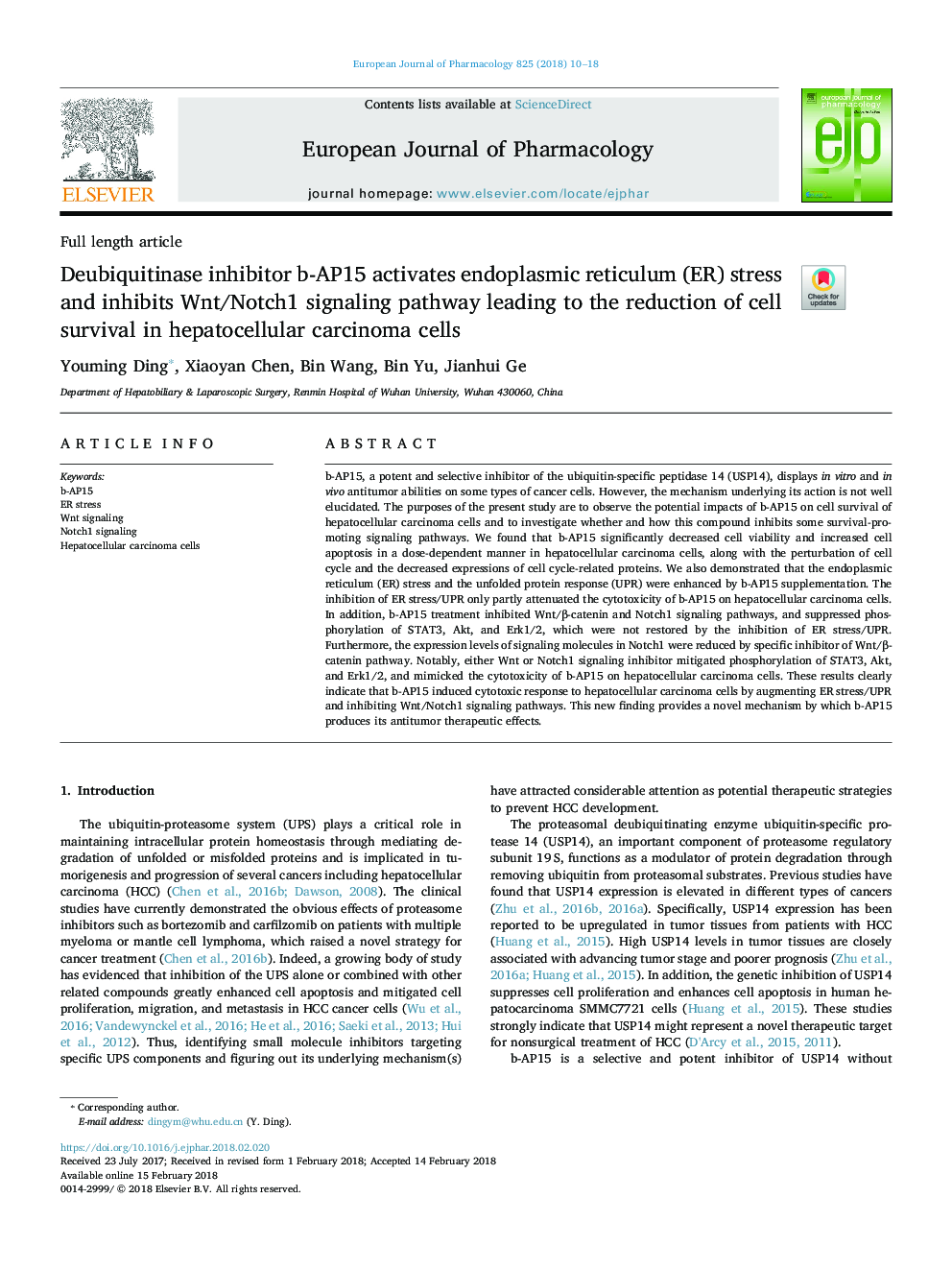| Article ID | Journal | Published Year | Pages | File Type |
|---|---|---|---|---|
| 8529205 | European Journal of Pharmacology | 2018 | 9 Pages |
Abstract
b-AP15, a potent and selective inhibitor of the ubiquitin-specific peptidase 14 (USP14), displays in vitro and in vivo antitumor abilities on some types of cancer cells. However, the mechanism underlying its action is not well elucidated. The purposes of the present study are to observe the potential impacts of b-AP15 on cell survival of hepatocellular carcinoma cells and to investigate whether and how this compound inhibits some survival-promoting signaling pathways. We found that b-AP15 significantly decreased cell viability and increased cell apoptosis in a dose-dependent manner in hepatocellular carcinoma cells, along with the perturbation of cell cycle and the decreased expressions of cell cycle-related proteins. We also demonstrated that the endoplasmic reticulum (ER) stress and the unfolded protein response (UPR) were enhanced by b-AP15 supplementation. The inhibition of ER stress/UPR only partly attenuated the cytotoxicity of b-AP15 on hepatocellular carcinoma cells. In addition, b-AP15 treatment inhibited Wnt/β-catenin and Notch1 signaling pathways, and suppressed phosphorylation of STAT3, Akt, and Erk1/2, which were not restored by the inhibition of ER stress/UPR. Furthermore, the expression levels of signaling molecules in Notch1 were reduced by specific inhibitor of Wnt/β-catenin pathway. Notably, either Wnt or Notch1 signaling inhibitor mitigated phosphorylation of STAT3, Akt, and Erk1/2, and mimicked the cytotoxicity of b-AP15 on hepatocellular carcinoma cells. These results clearly indicate that b-AP15 induced cytotoxic response to hepatocellular carcinoma cells by augmenting ER stress/UPR and inhibiting Wnt/Notch1 signaling pathways. This new finding provides a novel mechanism by which b-AP15 produces its antitumor therapeutic effects.
Related Topics
Life Sciences
Neuroscience
Cellular and Molecular Neuroscience
Authors
Youming Ding, Xiaoyan Chen, Bin Wang, Bin Yu, Jianhui Ge,
